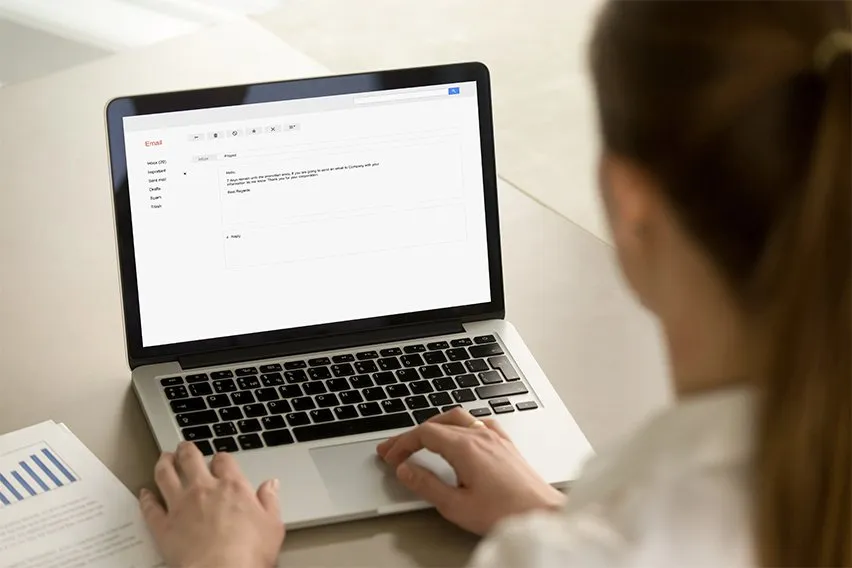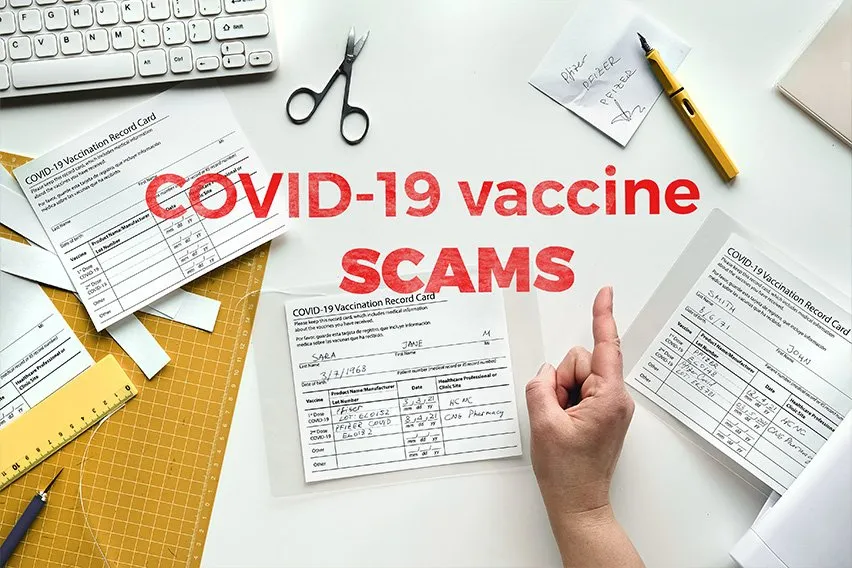6 Email Etiquette Tips Every Professional Should Know

Small business email etiquette can be quite fickle.
Some pride themselves on their ability to create a straightforward, corporate-sounding email.
Other businesses pride themselves on the complete opposite.
So as a small business owner, how do you navigate these rocky waters to deliver effective emails?
The simple answer is that you can’t please everyone. Each business has its own voice or brand.
But there are still basic email etiquette rules that are universal. So here are our top 6 email etiquette tips every professional should know.
Here’s What We’ll Cover:
1. No Spelling or Grammar Mistakes
2. Avoid Dull and Vague Subject Lines
4. Reply to Emails in a Timely Fashion
1. No Spelling or Grammar Mistakes
This is one of the basic rules, but something that we still see so much of.
Research has shown that making simple spelling or grammar mistakes impacts how people see you and your business.
One study found that an email with grammatical errors suggested that the sender was less intelligent and trustworthy.
It can also suggest a lack of care which is not something you want to be associated with.

2. Avoid Dull and Vague Subject Lines
Subject lines are important in any well-crafted email. Your subject lines should entice the recipient to want to open up the email and read on.
One way to guarantee going straight to the trash folder is having vague subject lines.
Your subject line is the first thing the reader will see. It’s your chance to make a good first impression, so there should be no lack of thought going into your subject lines.
Your subject line should give the reader a clear and intriguing hook that tells them exactly what to expect when they open the email. You also don’t want to try and trick the reader into opening the email only to be greeted by something completely different than what they expected.
3. Fact Check
As they say, the Devil is in the Detail.
A lot of companies like to personalize their emails. For example, people on mailing lists will often be addressed by name or by their company name.
This is a lovely touch as you feel as if you’re being spoken to directly instead of just being sent a clear ‘copy and paste’ chain of emails.
While this is a great tool for building relationships and trust with your customers, it can all come crashing down if you use the wrong name or pronoun. Or even if it’s clear it hasn’t been sent to the correct person.
In the best-case scenario, they open an email addressed to another name, instantly see it as a mistake and disregard the contents.
In the worst-case scenario, they see the mistake as lazy, sloppy and maybe even offensive.
It’s much better email etiquette to pay careful attention and double-check your facts before sending.
4. Reply to Emails in a Timely Fashion
When running a small business, you can sometimes be swamped with things to do and emails to read and reply to. This is completely normal and understandable.
However, you should always try to take the time to respond to emails within a reasonable period of time.
Your customers want to feel valued and appreciated and there’s no better way to express this than by showing good, prompt customer service.
5. Shorten Your URLs
It’s very common to send links in an email. Whether it’s through to your website, your FAQ section or any outside content.
But pasting entire URLs into your email takes up valuable space and it also looks messy and unprofessional.
Almost every email service allows you to create a ‘hyperlink’ that contains a URL.
For example, let’s say you were linking somebody through to a FreshBooks blog post.
Instead of writing this:
Check out this great blog https://www.uat.freshenv.com/blog/the-most-important-numbers-to-grow-your-business
You could make it much neater and easier to use by adding a hyperlink:
Check out this great blog!

6. Limit Your Use of Emojis
There are a few different trains of thought on this one.
Some see Emojis as a friendly way to communicate, and as a way to replace facial expressions or body language. But others can see them as unprofessional.
Very simply; our best tip is only to use an Emoji if your customer has used one first.
That way you can see what their email etiquette is and match yours to it.
Key Takeaways
As a small business owner, you’ll eventually develop your own brand voice that suits you and your customers. In the meantime, taking heed of these tips is a sure-fire way to keep yourself out of any email etiquette-related embarrassment.
Are you looking for more business advice on everything from starting a new business to new business practices?
Then check out FreshBooks. FreshBooks is accounting software that provides accounting solutions for small business owners.
RELATED ARTICLES

 How to Start a Vending Machine Business (4 Easy Steps)
How to Start a Vending Machine Business (4 Easy Steps) What Is a CSV File? Learn How to Open, Edit & Create a CSV File
What Is a CSV File? Learn How to Open, Edit & Create a CSV File Printing Deposit Slips: A Step-by-Step Guide
Printing Deposit Slips: A Step-by-Step Guide How to Print Checks at Home for Your Business
How to Print Checks at Home for Your Business Zoom Background Ideas. How to Choose the Perfect Background
Zoom Background Ideas. How to Choose the Perfect Background How To Protect Yourself From COVID-19 Scams
How To Protect Yourself From COVID-19 Scams